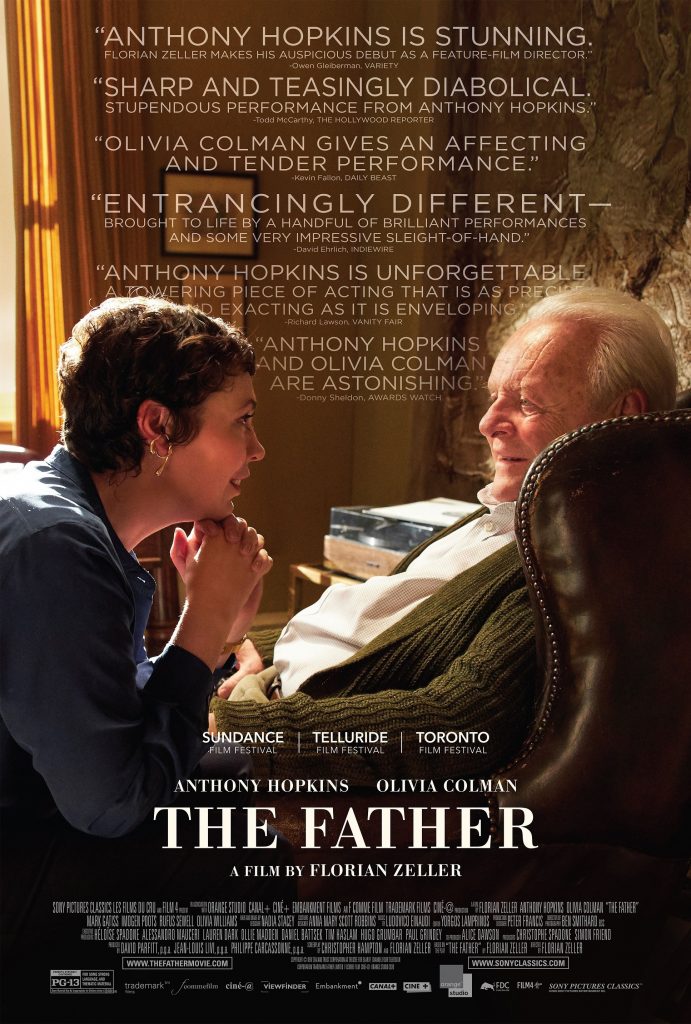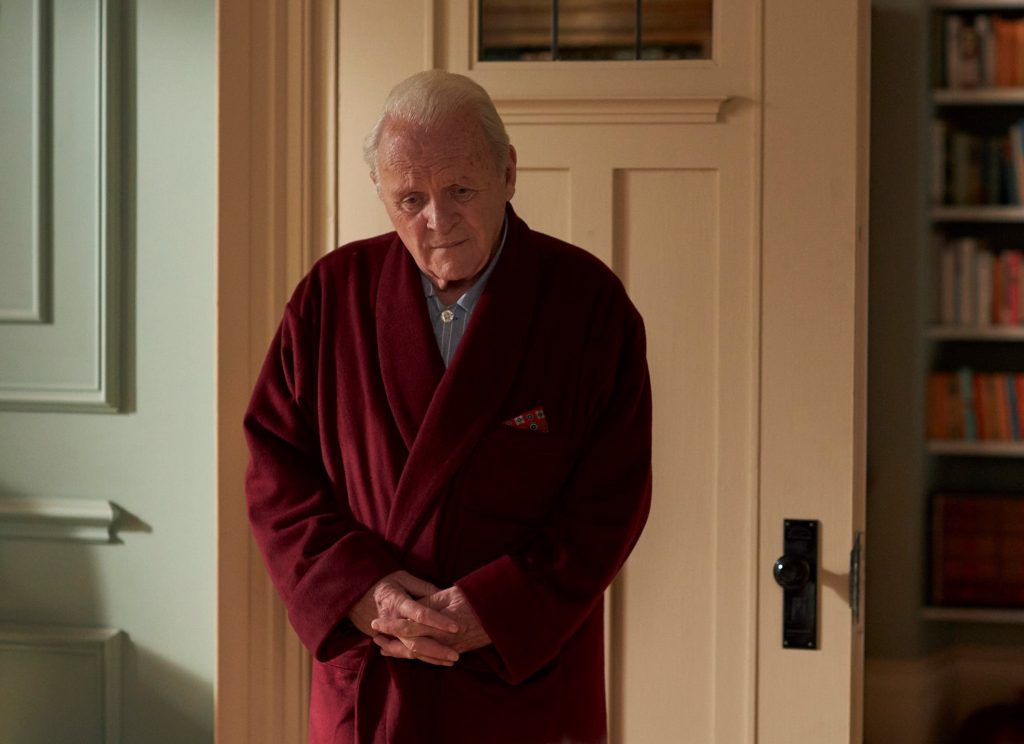“The Father”–A Patriarch’s Decline

The Father is a devastating, disquieting journey into the horrors of dementia, both for the afflicted and for those who are close to the afflicted. Artfully helmed by French playwright Florian Zeller in his directorial debut, Zeller invites the viewer into a breathtaking and wrenching look at advancing dementia through both the individual frightened by what is happening and to the no-less-terrified family and caregivers. Watching a loved one die is always harrowing, but dementia makes it especially so, as the patient not only slips away mentally, but lashes out in angry and hurtful ways as they do so. Given the increase in movies about an aging population susceptible to dementia and Alzheimer’s, The Father nonetheless breaks new ground.
The main character, Anthony (the astonishing Anthony Hopkins), is the unreliable narrator, forcing the audience to see what he sees and try to make sense of that world. In a superb feat of writing, directing, and acting, The Father hurls the audience into the main character’s head with time and space revealing a more constricting and often confusing perspective. In doing so, The Father conveys the full tragedy and vertiginous confusion of dementia. Anthony slowly unravels into someone almost unrecognizable to himself and to his daughter, Anne (Olivia Colman).
Without any spoilers, we see the brilliant way The Father communicates Anthony’s increasing inability to differentiate his loved ones from strangers. The viewer feels as trapped in this small, shifting space as Anthony does. The present invades the past to the point where it’s nearly impossible to tell them apart. To that end, the timeline is critical: a missing watch, changes in apartment decor and furnishings symbolizing Anthony’s chronological undoing. Are his daughter and nurse playing cruel games on him? The conflicting scenes offer a puzzle with no easy solution. That, essentially, is the prison of Anthony’s mind. And Anthony’s confusion is, in itself, disorientating for the viewer.

First and foremost, Anthony Hopkins, –in his career-best performance,– is truly astonishing as a shattered, aging, and fragile soul slowly surrendering to his mind as an enemy inside his body. To play a man who’s begun to lose his mental faculties, Hopkins methodically peels away everything until there’s nothing left but frailty, distress, and despair.
Olivia Colman is the keystone to Hopkins, giving a sympathetic and equally heart-wrenching performance as the daughter undeserving of her father’s hurtful responses. Colman is also tasked with the unenviable role of the concerned daughter trying to balance parental love with her own needs, without seeming cold and egotistical. She never fails to deliver.
Fantastic work from both actors is sustained throughout the film, with sensitively interpreted, nuanced roles by the seasoned supporting cast, especially Rufus Sewell, Olivia Williams and Imogen Poots.
One day, everyone you know and love will die, the immutable truth we all carry with us. The inevitability of decay becomes a little harder to turn away from with every passing year. Rarely is the nature of death and dignity explored as terrifyingly andtenderly as it is in The Father.
With a profound sadness at its core , The Father is emotionally charged and upsetting, particularly in one of the last scenes. You’ll think about The Father long after itends.
Note: Both Anthony Hopkins and Olivia Colman have been nominated for Academy Awards this year for their performances.

V, Robertson
Jinny hopes to see it
lenore gay
I’m sure no one could a better job than Anthony Hopkins with this role.
May or may not watch. For 4 years I watched my dear father through all stages of dementia. We lived in the same city. He taught art in school, was a watercolor painter and a published poet. Watching that all disappear was terrible. Nothing worse.
Best,
Lenore